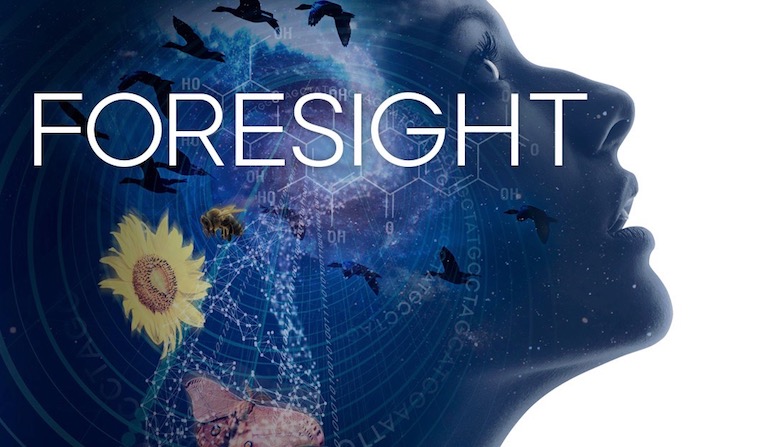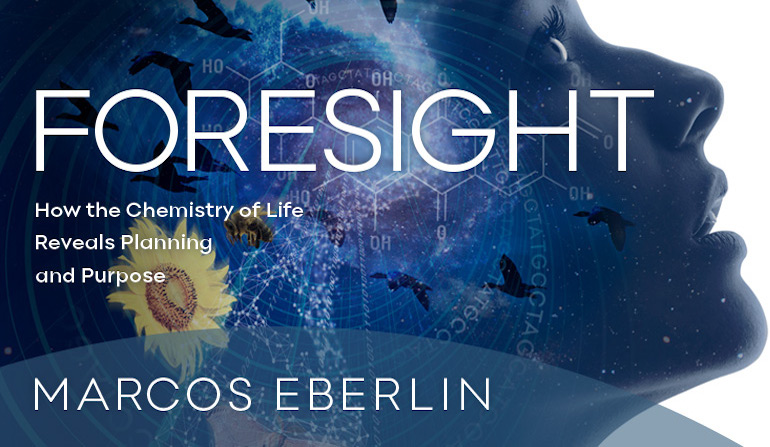 Intelligent Design
Intelligent Design
 Life Sciences
Life Sciences
With Three Nobel Endorsements, Chemist Marcos Eberlin Advances Case for Intelligent Design


The case for intelligent design begins with biology and paleontology, pushes onward to cosmology, physics — and now chemistry. Marcos Eberlin is the superstar Brazilian chemist and member of the Brazilian Academy of Sciences who founded and for a quarter century headed the Thomson Mass Spectrometry Laboratory. His new book, Foresight: How the Chemistry of Life Reveals Planning and Purpose, is out now from Discovery Institute Press.
Foresight carries endorsements not just from one Nobel Prize-winning scientist. No, not just two either. But three. They are Sir John B. Gurdon (Physiology or Medicine, 2012), Gerhard Ertl (Chemistry, 2007), and Brian D. Josephson (Physics, 1973). Of course, accolades from famous people don’t guarantee that the conclusion of the book is right. But at some point the critics need to admit that the accumulating strength of the argument demands, at last, an adequate response.
As Dr. Ertl writes, “Regardless of whether one shares Eberlin’s approach, it is definitely becoming clear that nature is still full of secrets which are beyond our rational understanding and force us to humility.” Yes, indeed.
Do you want to help celebrate the launch of this latest leading scientific voice in the discussion about design in nature? Join us in Seattle on Tuesday, May 7, at the Woodland Park Zoo, at 7:30 pm. More information is here. Meet and hear from Dr. Eberlin, a dynamic speaker will also be touring the United States in coming weeks with speaking events in Irvine, California (May 2), Dallas, Texas (May 5), and Littleton, Colorado (May 6).
The Imperative of “Foresight”
We’ll be sharing more here in coming days about the book, which both recounts Dr. Eberlin’s personal experiences and gives his own perspective on the evidence for design in life. He surveys powerful indications at the micro and macro levels — bacteria, plants, birds, and more — that life’s evolution demonstrates not blind groping but intelligent “foresight,” looking from simpler beginnings to the complex biological wonders we know today.
In case after case, he argues that life purposefully devised “solutions that anticipated problems before they arose,” a sure “hallmark of mind.” The unintelligent Darwinian process lacks the capacity for such engineering but so do other “alternative evolutionary proposals” (neutral evolution, evolutionary developmental biology, natural genetic engineering, a hypothetical multiverse, and other popular proposals).
The Cell Membrane
Only intelligent design stands as a theory capable of explaining, for example, the ingenious invention, the cell membrane, that keeps every living cell both sealed against and selectively open to its environment. No cell could live a moment without this remarkable feat of engineering. It must have been present in the first cell. As Eberlin writes:
If you were to bid this demanding, multifaceted job out to the most technologically advanced engineering firms in the world, their top engineers might either laugh in your face or run screaming into the night. The requisite technology is far beyond our most advanced human knowledge. And remember, getting two or three things about this membrane job right — or even 99 percent of the job — wouldn’t be enough. It is all or death! A vulnerable cell waiting for improvements from the gradual Darwinian process would promptly be attacked by a myriad of enemies and die, never to reproduce, giving evolution no time at all to finish the job down the road.
“All or Nothing!”
This is the refrain of the book: “It is all or death!” “All or nothing!” Half-solutions are no solutions at all. As just one example, again drawn from his discussion of the cell membrane, “A successful water gate…poses an ‘all or nothing’ challenge for life. Foresee the need for these exquisitely precise water gates and somehow engineer them for just-in-time delivery, or the grand start-up called life quickly goes bust.”
Scientists, though, habitually overlook the imperative of foresight:
Sometimes I come across articles in journals such as Science and Nature theorizing about simple, primordial cell membranes made of “rudimentary” molecules such as fatty acids. But such flights of fancy ignore key chemical details of what’s needed to render cellular life viable.
The devil is in the chemical details. Or is it the devil? In an inspiring conclusion, Eberlin cites the “fathers of modern science — Copernicus, Galileo, Kepler, Newton, Boyle,” and others who have shared his conviction about the design in nature. Another Nobel Prize winner, J.J. Thomson, who founded Eberlin’s own research field of mass spectrometry, said in a 1909 address that as science advances, we can expect “higher peaks,” “wider prospects,” all leading to the conclusion foreshadowed long ago by the book of Psalms, “Great are the works of the Lord.”
Dr. Eberlin’s research has borne this out for him. If there is a designer behind the chemistry of life, it seems he wishes to be discovered not merely as a matter of feeling, or faith in Biblical doctrine, but as an objective inference from overwhelming trends in scientific evidence. This echoes the thought in many other ID books, from The Privileged Planet to Darwin Devolves.
As another endorser, UC Santa Barbara biochemist Michael Bowers, puts it, “Foresight provides refreshing new evidence, primarily from biology, that science needs to open its perspective on the origin of living things to account for the possibility that purely natural, materialistic evolution cannot account for these facts.” Marcos Eberlin’s book is an important new contribution, accessible and highly substantive, to the growing literature supporting a scientific alternative to materialism, the modern theory of ID.


